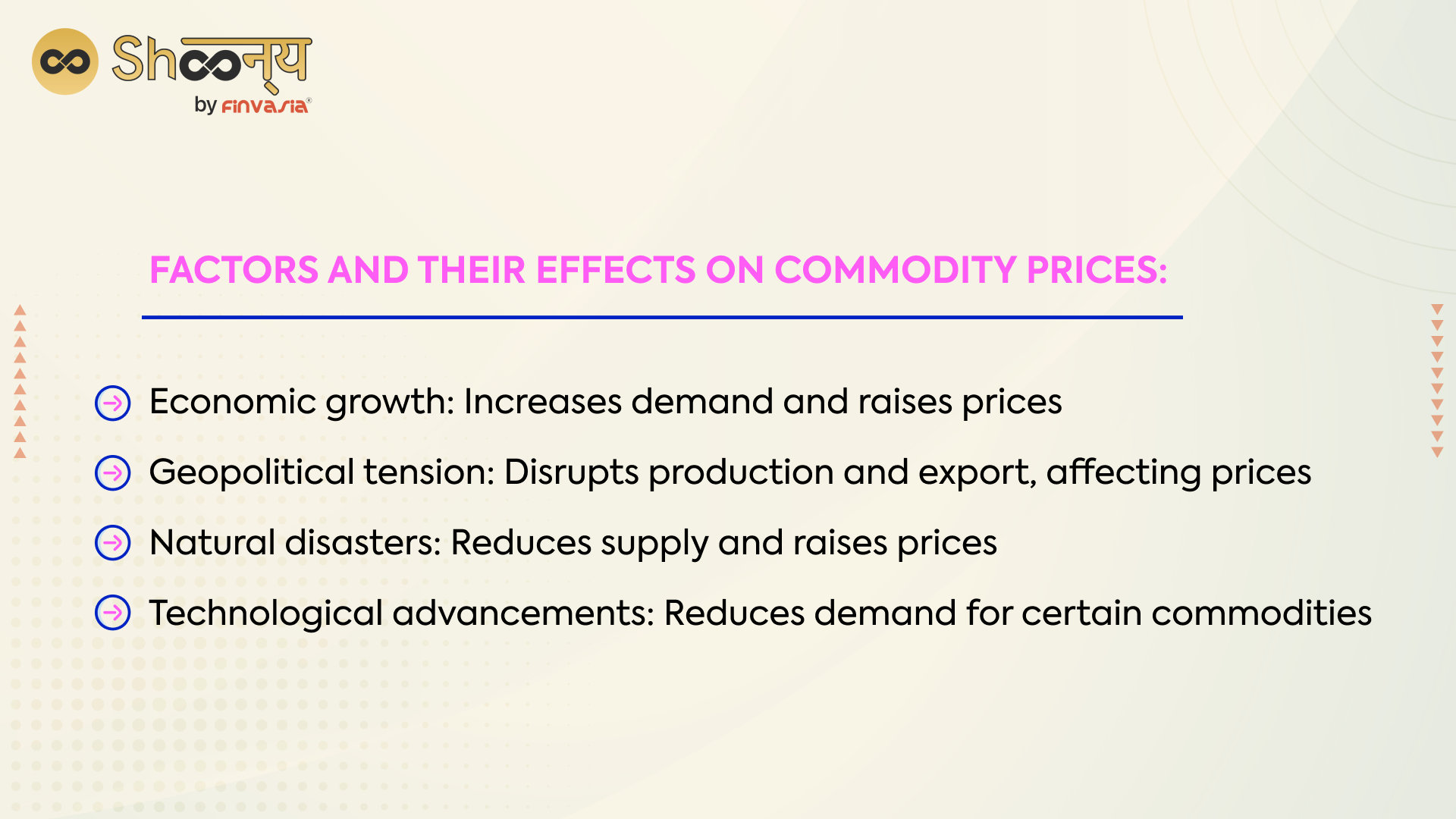Impact of Global and Economic Factors on Indian Commodity Market

The Indian commodity market is highly influenced by a variety of factors, including global events and the performance of the Indian economy. In this article, we will investigate the impact of these factors on the Indian commodity market and the impact of commodity prices on the economy
- Economic Slowdowns and Recessions
Economic slowdowns and recessions can profoundly affect the Indian commodity market as demand for commodities decreases during times of economic uncertainty.
For example, during the 2008 global financial crisis, demand for commodities such as oil and metals declined, leading to lower prices in the Indian commodity market.
On the other hand, during periods of economic growth, demand for commodities typically increases, leading to higher prices.
- Geopolitical Tensions and Conflicts
Geopolitical tensions and conflicts can also significantly impact the Indian commodity market, particularly for commodities such as oil and natural gas.
For example, disruptions in oil supplies due to geopolitical tensions in the Middle East can lead to higher oil prices in India and other parts of the world.
Similarly, conflicts in major producing countries can disrupt the production and export of certain commodities, affecting their prices in the Indian commodity market. For instance, the ongoing Russian-Ukraine war has already impacted the commodity markets.

- Natural Disasters
Natural disasters such as hurricanes, earthquakes, and droughts can substantially impact the Indian commodity market, particularly for commodities such as agricultural products and precious metals.
For example, a severe drought in a major producing country can lead to lower crop yields and higher prices for agricultural commodities in the Indian market.
- Government Policies and Regulations
Government policies and regulations can also play a critical role in shaping the Indian commodity market.
- For example, agricultural subsidies and trade policy changes can impact the prices of agricultural commodities such as corn, soybeans, and wheat.
- Similarly, regulations affecting the mining and export of precious metals such as gold and silver can impact their prices in the Indian market.
- Impact of Commodity Prices on Economy
The Indian economy relies highly on the import and export of commodities, and changes in economic growth, inflation, and interest rates can significantly affect the commodity market.
For example, a rise in interest rates can decrease demand for commodities as investors shift their investments to more interest-bearing assets.
- Technological Innovations
Investors in the Indian commodity market should also be aware of the impact of technological innovations on the commodity market.
For instance, advancements in renewable energy technology can reduce the demand for fossil fuels, such as coal and oil, leading to lower prices for these commodities in the Indian market.
Conclusion
The Indian commodity market is highly influenced by various factors, including global events, the performance of the Indian economy, and technological innovations. By performing fundamental analysis and adapting investment strategies based on changing market conditions, investors can make well-informed decisions








